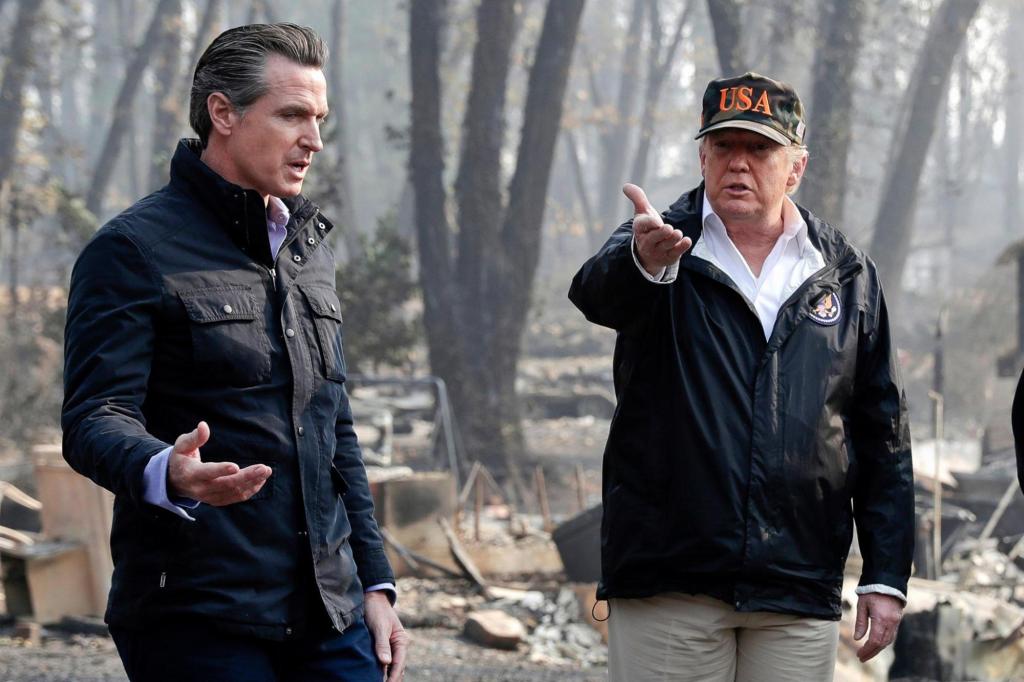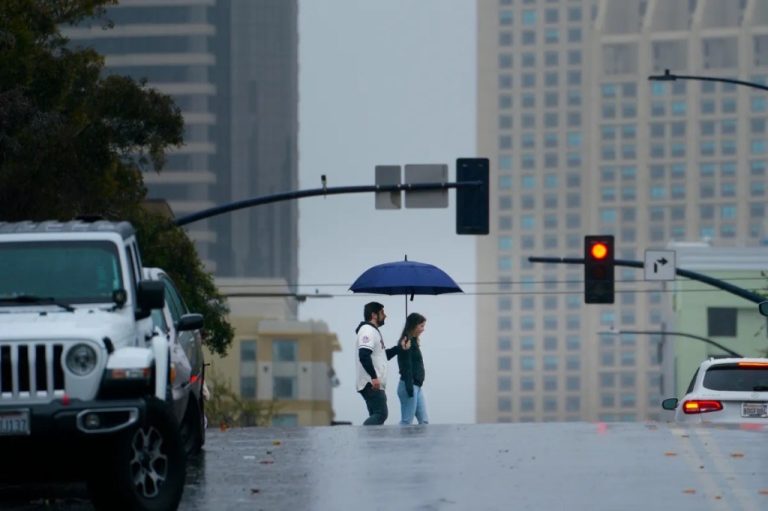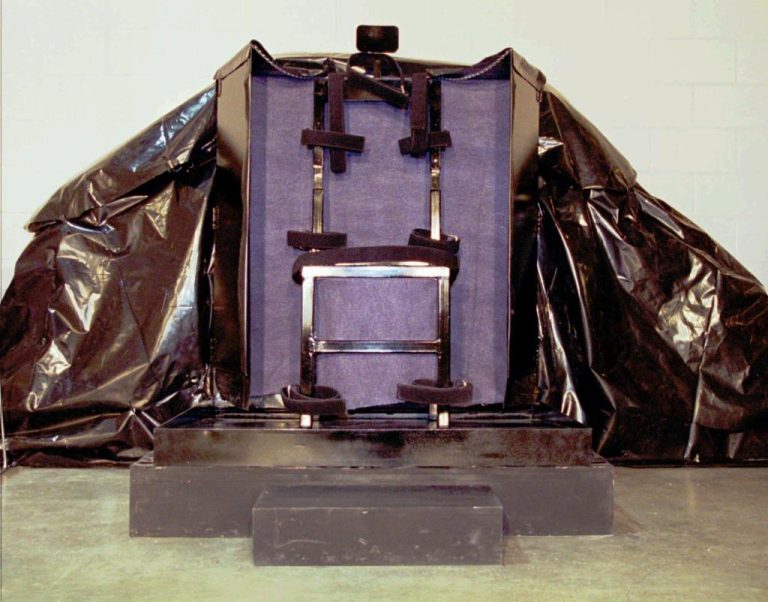

Gov. Gavin Newsom and President-elect Donald Trump are on war footing once again.
The policies Trump plans to pursue following his second inauguration Monday have the potential to have more of an impact on California than his actions during his first term in the White House. Newsom again pledges to resist.
Trump’s promise of mass deportations of migrants, tariffs on major international trading partners and rollbacks of environmental regulations, if carried out, all would hit the Golden State hard.
On the flip side, millions of California homeowners could benefit as Trump apparently is considering lifting the $10,000 cap on state and local tax (SALT) deductions. Meanwhile, the other tax cuts proposed by the president-elect would mostly go to wealthy residents.
Whether Trump fully pursues the agenda he has laid out, or whether he is able to enact it, remains to be seen.
There’s also this: Trump may sound like he wants to punish California, and the governor in particular, but some of his actions could hurt key industries and that could threaten his own political and governing interests.
Silicon Valley, where Trump has influential supporters, is a big driver of the nation’s tech economy. California farms are vital to the U.S. food supply, producing, for example, a third of the country’s vegetables and more than three-quarters of its fruits and nuts.
Trump’s trade, tax and immigration policies could affect the health of both, sending a ripple effect across the country. California accounts for 14 percent of the national gross domestic product, according to Newsom’s office.
More broadly, Californians, like residents in other states, would feel potential cuts in Medicare, Medicaid, the Affordable Care Act and Social Security.
Trump and Newsom and their allies have been jousting in the media, but it’s hard to tell what their subsequent actions will be.
The back-and-forth has largely centered on the devastating fires in Los Angeles, particularly Trump blaming the catastrophe on Newsom’s water management.
That’s nonsense, as anyone with a bit of knowledge about California water policy will tell you. That doesn’t mean there shouldn’t be an examination of what could be done better to limit fire damage — from brush clearing to firefighter staffing to shutting down power lines in threatened areas.
Bringing the issue back to immigration, Trump and Republicans have criticized the state for spending money to aid undocumented immigrants rather than using it for firefighting.
The crucial issue at hand is what kind of aid the state and federal governments provide for wildfire relief and how they do it.
Trump’s Republican allies in Congress have discussed tying a wildfire relief package to raising the federal debt ceiling — which Democrats like to point out would be needed for, among other things, the Trump tax cuts.
Democrats cried foul, but those in Sacramento may have realized they had a problem. Newsom and Democratic leaders had agreed on a $50 million package to combat Trump on legal and immigration fronts, much as they did during Trump’s first term. Then they discussed linking that to at least $2.5 billion in state wildfire relief.
Republicans cried foul. California Democratic leaders then decided to handle both separately, according to Politico.
Under a pending proposal, the $50 million would be split, with half going to the state Department of Justice to fight the federal government in court and the other $25 million to protect immigrants from deportation and detention.
Apart from wildfire relief, changes in immigration policy may be the most imminent under Trump.
Opponents may be gearing up their strategy, but a tougher approach on immigration in general has bipartisan support, polls have shown. Some right-leaning local officials, such as El Cajon Mayor Bill Wells, say they want to help the Trump administration’s efforts.
Politically, Democrats were getting killed on immigration during last year’s campaign and some sought to pressure President Joe Biden to crack down on illegal border crossings.
Rep. Mike Levin was one of them. The four-term Democrat represents a swing district straddling the San Diego and Orange County line and is a constant Republican target.
In one of the first acts of his new term, Levin joined 47 other Democrats to vote for the Laken Riley Act, which opens the door for immigrants to be deported if they are charged with, but not yet convicted, of lower-level, nonviolent crimes, among other things. Levin was the only Democratic member of the San Diego County delegation to do so.
The state may have gotten a glimpse of the future earlier this month when the Border Patrol — under President Biden — conducted a major operation in agricultural country near Bakersfield. Immigrant advocates said it was the largest enforcement operation in the Central Valley in years “and fear that it could be a prelude of what’s to come under President-elect Donald Trump,” according to the Los Angeles Times, which said between 80 and 180 people had been detained.
U.S. Border Patrol Chief Agent Gregory Bovino emphasized agents had detained two child rapists and “other criminals,” as well as seized 36 pounds of narcotics. He said agents arrested others encountered during the course of the operation who were in the country illegally and that the operation was ongoing.
Bakersfield Mayor Karen Goh, a Republican, said she believed the focus of the operation was on cartel members engaging in criminal activity but voiced concern for “persons who are unnecessarily in fear.”
Rep. David Valadao, R-Hanford, urged “the Biden administration to ensure CBP is prioritizing criminals and not those responsible for producing our nation’s food supply.”
Tougher immigration enforcement has bipartisan support, but it also may be triggering bipartisan worries.
What they said
The Washington Post (@washingtonpost).
“Research shows a significant increase in vasectomies and tubal ligations in the months just before and after the Supreme Court ruled in Dobbs v. Jackson Women’s Health Organization, the 2022 decision that ended a constitutional right to abortion.”






